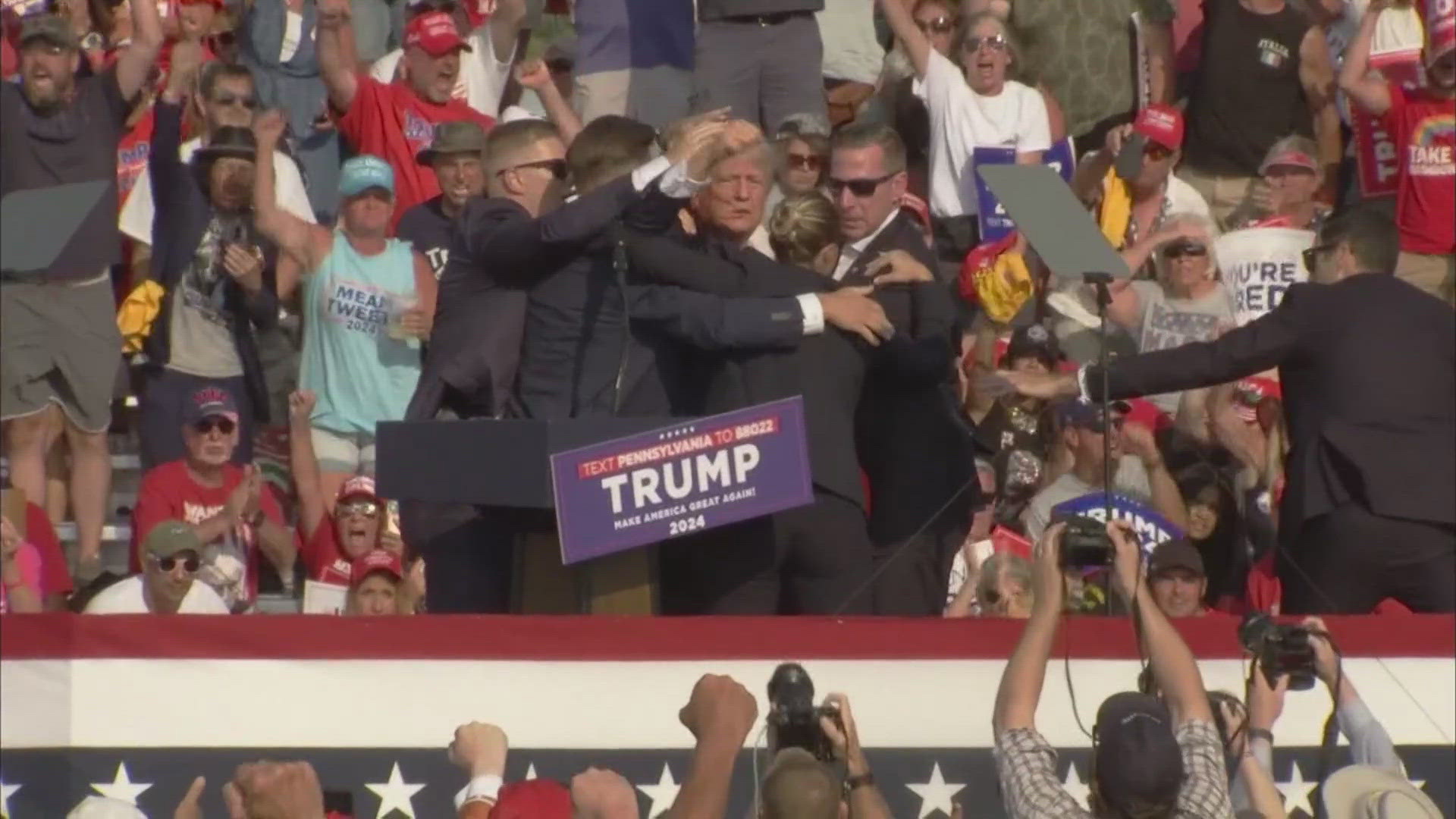ST. LOUIS — Medical experts are now speaking out in the aftermath of the attempted assassination on Saturday of former President Donald Trump and raising concerns about what kind of local and national trauma it caused.
Dr. LJ Punch has treated patients in trauma centers for years, moving to the St. Louis area after the Ferguson unrest in 2014.
Now on Washington University's faculty, Punch said that those who were wounded at Trump's rally in Butler, Pennsylvania, aren't the only ones left with scars.
Punch is the executive director of Power4STL, the home of The T and The Bullet Related Injury Clinic (BRIC). Power4STL is a nonprofit focused on harm reduction especially with gun violence.
Seeing the assassination attempt, Punch thought "that an entire nation just watched a former president have their life threatened."
"I knew that would mean an outbreak of bullet-related injuries and broken trust," Punch said.
Bullet-related injuries are defined as the physical, emotional, social and spiritual impact on a person, whether they have been shot or one of their loved ones was hurt.
Authorities said one rally attendee was killed Saturday and two spectators were critically injured. Trump's right ear was pierced by a bullet.
Punch said physical injuries tend to get worse, not better, over the first few days.
"That is because of the body's inflammation," Punch said. "In the act of trying to heal the wound, there can be increased tenderness, increased drainage and then the scarring kicks in that can also increase nerve-related pain."
The trauma, Punch said, is unlike any other illness.
"It changes the way you eat, sleep, move and think. It can be difficult to rest. It can be difficult to enjoy the day-to-day things you normally would. But most of all it can be difficult to believe the people around you are people who love you," Punch said.
Punch said people should try not to use Saturday's violence to inflame tensions, but rather to use it as an opportunity to check in on one another since it may have triggered past trauma in someone who's been impacted by gun violence.
Resources for crime victims:
If you have been a victim of a crime or know someone who has been, 5 On Your Side has compiled a list of resources.
The Crime Victim Center of St. Louis has multiple programs to support victims of crime. Crime Victim Center’s programs range from direct services to crime victims as well as “creating awareness and change within the systems they encounter.”
Life Outside of Violence "helps those harmed by stabbing, gunshot or assault receive the treatment, support and resources they need to find alternatives to end the cycle of violence."
The Urban League of Metropolitan St. Louis has the Neighborhood Healing Network, which serves people who have experienced crime, violence or been the victim of an incident that caused trauma.
The Bullet Related Injury Clinic (BRIC) is a community-based clinic in St. Louis that helps people heal after they have been injured by a bullet. The BRIC was established to help people who are discharged home from the emergency department after being shot.

